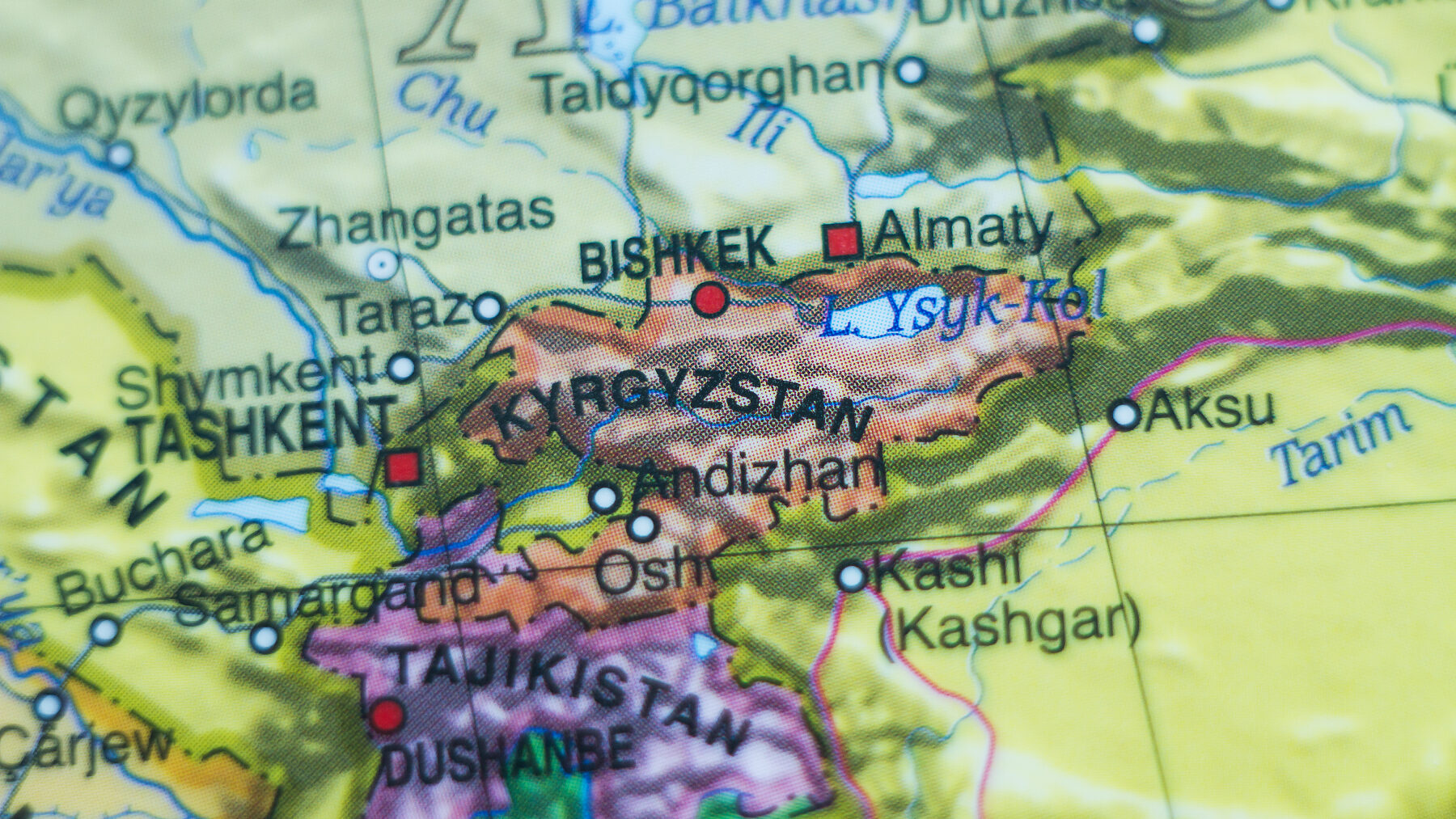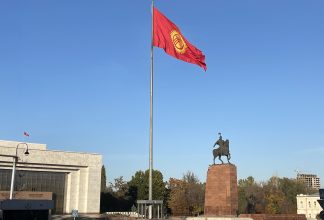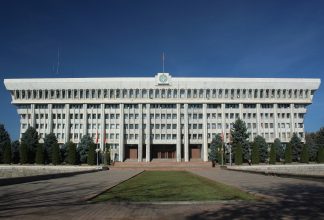Kyrgyzstan government should drop restrictive bills that target civil society actors

Authorities in Kyrgyzstan should drop two separate bills that propose imposing undue restrictions on the country’s embattled civil society organizations, the Norwegian Helsinki Committee and Civil Rights Defenders said in a statement today. If adopted into the law, both documents pose grave threats to local non-governmental organizations – from increased state control to suspension of their activities and criminal prosecution of their staff – which stands at odds with the Kyrgyz government’s international human rights obligations.
The bills, separately authored by the presidential administration and a lawmaker, Nadira Narmatova, and submitted for public discussion in November, pertain to the regulation of civil society organizations – non-profit and non-governmental organizations. Both documents contain provisions that have a striking resemblance to Russia’s notoriously repressive “foreign agents” law which continues to obstruct the work of civil society organizations in that country. If passed, the proposed legislation will grant state agencies, including the justice ministry and the prosecutors’ office, excessive control over civil society organizations, impose undue restrictions and barriers to civic activism, and push Kyrgyzstan further along its recent authoritarian trajectory, the Norwegian Helsinki Committee and Civil Rights Defenders said.
The draft law “On Nonprofit Non-Governmental Organizations,” authored by the presidential administration, is out for public discussion until December 2, when it will be introduced in the parliament. If passed in its current form, the bill will grant the state excessive control over civil society actors and powers to arbitrarily deny re/registration or shut down any NGO on broad and vaguely worded reasons. The bill allows state agencies to send their representatives to any events or activities organized by the NGOs, and demand a wide array of financial and other documentation for inspection. In a surprising comment to the press, the prosecutors’ office said that the Kyrgyz constitution and other national laws bar them from controlling or interfering with the work of NGOs.
The proposed legislation requires that civil society organizations obtain registration from the state to operate, while already-registered organizations are required to re-register. Requirements to obtain registration include extensive reporting to various state bodies, while failure to comply with the state-imposed reporting burden qualifies as grounds for refusal of the registration. The bill also requires local NGOs to have at least 10 board members and bars foreigners and non-residents from founding an organization. Another provision demands that foreign organizations who conduct any activities in the country must seek registration of their branch which would be subject to all restrictions imposed by the Kyrgyz legislation. Furthermore, any NGO work that constitutes regular and legitimate civic participation in society can be defined as “political activities”. This includes activities such as public advocacy, awareness raising, informational work and campaigns, as well as efforts to influence public opinion and to influence state bodies to respect human rights and democratic principles. The definition of an organization’s activities as “political” will grant the authorities grounds to refuse any group registration or re-registration. Those NGOs who would fail to seek re-registration within the required 6 months period may be shut down by the state, whereas organizations whose name or activities would be deemed as offending unspecified local norms, morals or traditions may be denied re/registration altogether.
The bill authored by MP Narmatova is focused on the NGOs-recipients of foreign grants, which in itself resembles Russian laws. Narmatova introduced the bill on the 21st of November, 2022. Among the many restrictive proposals of the bill is to label recipients of foreign grants as “nonprofit organizations that function as foreign representatives” who would be subject to various strict requirements, including their entry into the registry of “foreign representatives”, heavy reporting on their activities, and mandatory financial audits. The proposed legislation also empowers various state agencies to demand from the NGOs different information related to their activities, conduct inspection visits, and send their representatives to any events organized by the activists. Those who fail to comply with the proposed restrictions are to face different sanctions – from suspension of their activities to a ban on accessing funds, to being shut down or facing criminal prosecution.
Similarly to the presidential administration bill, Narmatova’s proposal seeks to require foreign organizations to open and register their branches in Kyrgyzstan and report on their activities and financial expenses to the government. Likewise, the MP’s bill also seeks to target those civic organizations whose legitimate projects and work touch upon any political processes – e.g. anything related to elections – in the country. In an open letter, more than 30 Kyrgyz civil society organizations decried Narmatova’s bill and called on the Kyrgyz authorities – President Sadyr Japarov, his cabinet members, the parliament, the Ombudsman’s office – to do everything in their power to reject it.
“For years we looked to Kyrgyzstan as a beacon of democracy and human rights in Central Asia, in no small part thanks to the work of its strong civil society. However, this draft legislation is part of a recent and alarming turn Kyrgyzstan has taken towards authoritarianism,” said Berit Lindeman, Secretary General of the Norwegian Helsinki Committee. “Instead of viewing it as a threat, authorities in Kyrgyzstan should recognize the invaluable contribution of its rich civil society and facilitate its further growth – I call on decision makers to scrap the proposed draft law”.
The submission of the draft law coincides with a worsening of Kyrgyzstan’s human rights situation. More than twenty activists and civil society leaders remain in state custody following their arrest in October in connection to their public protest against the government’s decision to transfer the Kempir-Abad water reservoir and other Kyrgyz territories to neighbouring Uzbekistan within a border demarcation agreement. Attacks on the media – including the draconian media bill proposed by the presidential administration and unlawful deportation from the Bishkek courtroom to Moscow of a Kyrgyz journalist Bolot Temirov – add to mounting concerns over the nation’s human rights record. As a signatory to the International Covenant on Civil and Political Rights, as well as other international treaties, Kyrgyzstan has committed to respect citizens’ rights and freedoms, ensure their ability to freely express critical opinions, and withstand from creating unnecessary restrictions for civil society.
“We urge the government of Sadyr Japarov, Kyrgyzstan parliament, and the judicial authorities to reverse their actions, drop politicized and retaliatory prosecution of journalists and civic activists, and repeal all legislation that pushes the country towards authoritarianism,” said Anders Pettersson, Executive Director at Civil Rights Defenders. “Democratic future of Kyrgyzstan and the region depends on the ability of each and every its resident to be able to exercise their rights and freedoms without unnecessary obstructions, excessive state control, or threats of retaliatory prosecution. We urge the government to respect their own commitments to guarantee human rights.”


